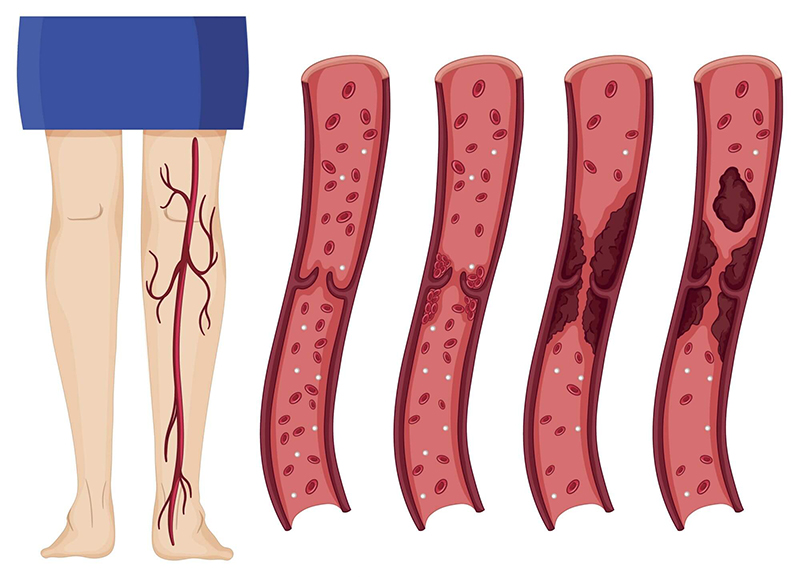Deep vein thrombosis (DVT) is a fairly common condition that can become dangerous if left untreated. DVT occurs when a thrombus, also known as a blood clot, forms deep in the vein. These blood clots can break loose and travel through your bloodstream. This can result in a pulmonary embolism if the blood clot enters the lungs and causes a blockage.
What are the symptoms of DVT?
Common symptoms include:
- Swelling in the foot, ankle or leg that is usually just on one side
- Cramping that usually begins in your calf of the affected leg
- Severe and unexpected pain in the foot and ankle
- An area of the skin that feels warmer than the skin of the surrounding areas
- Pale, reddish or bluish skin in the affected area
Who is at risk for DVT?
DVT commonly occurs in those 50 years of age and older, and those with conditions that put them at risk of developing blood clots. These conditions include:
- Injuries to a vein due to a broken bone, surgery or other trauma
- Obesity
- Family history of DVT
- Birth control pills
- Smoking
- Staying seated for long periods of time especially while in a car or on a plane. Remember to get up and stretch!
- Pregnant women
Can I prevent DVT?
You can lower your odds of getting DVT by making simple lifestyle changes. Try these tips to help keep your blood circulating properly:
- If you smoke, consider cutting back and eventually quitting
- Maintain a healthy weight and exercise regularly. Try these exercises to help improve circulation
- Don’t skip regular check-ups with your doctor
- Stay hydrated – soda and coffee don’t count!
- Try not to sit for too long, especially while traveling. If you’re on a flight or traveling for several hours, remember to get up and stretch. It’s also a good idea to wear loose fitting clothes
- Follow surgery after-care. After some procedures, your doctor may advise wearing compression stockings, take blood thinners or start getting up and moving around. Don’t ignore this advice as it is beneficial to a healthy recovery!
At Advanced Vein Center, we use state of the art ultrasound technology to assess the deep veins of the lower legs. If you’re experiencing any of these symptoms, please call us today (207) 772-1820 to see how we can help!

